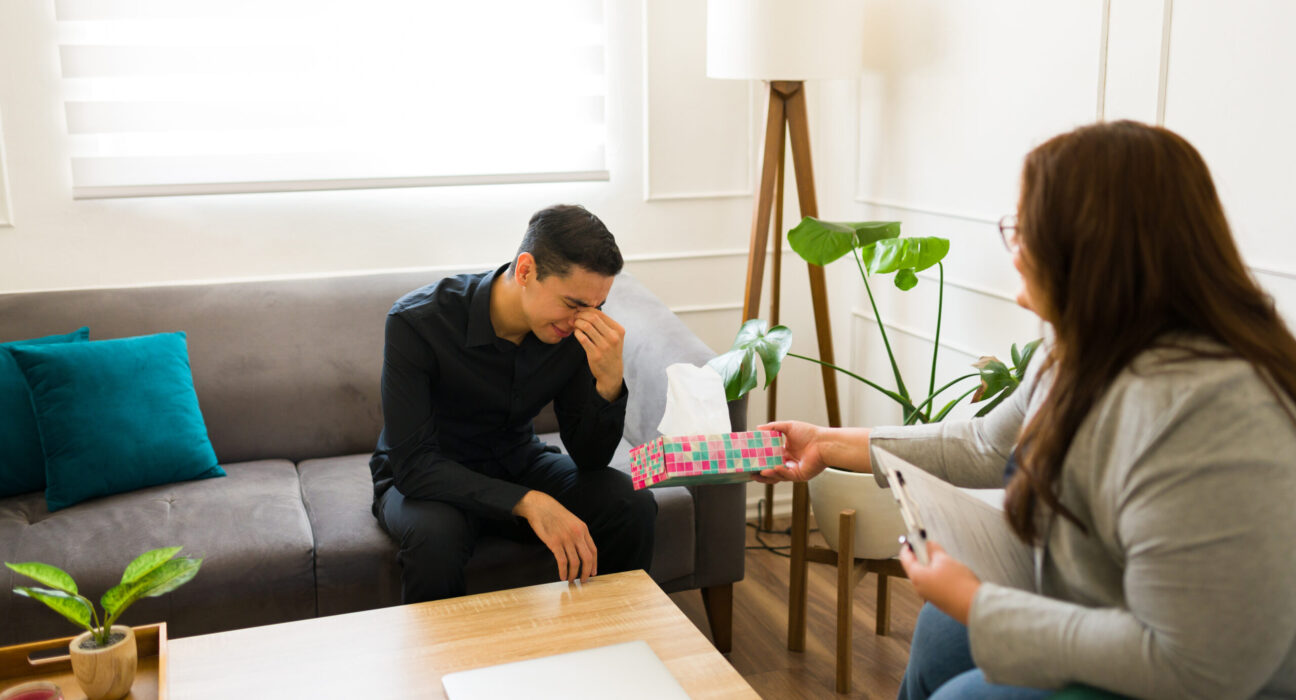In Homer’s Odyssey, composed across the eighth century BCE, we encounter the quintessential masculine hero, Odysseus. A decorated veteran of the Trojan War, he finds himself “imprisoned” in luxury on Calypso’s island. Despite the fabric comforts surrounding him, Odysseus is inconsolable, weeping as he longs for his wife and son.
Fast forward to the twenty first century where despite increased awareness of mental health issues, there still exists considerable stigma. Mental health challenges are usually not a contemporary phenomenon, nor are they exclusive to any gender. Yet, in today’s world men proceed to face unique obstacles with regards to addressing their mental health.
Landscape of Men’s Mental Health
Recent statistics paint a sobering picture. According to the National Institute of Mental Health, greater than 6 million men within the United States experience depression every year. Even more alarmingly, the American Foundation for Suicide Prevention reports that men die by suicide at a rate 3.63 times higher than women. These numbers underscore a critical need for attention to men’s mental health.
But why do men appear to struggle more with in search of help? Cultural expectations and societal norms often play a big role. Many men have been conditioned to consider that expressing emotions is an indication of weakness, resulting in what psychologists call “emotional dismissiveness.” This mindset can create barriers to acknowledging mental health concerns and in search of support.
The excellent news is that change is feasible, and it often begins with relationships. Strong connections – be they romantic partnerships, friendships, or skilled networks – can provide men with the support and understanding they should navigate their emotional landscapes.
Research has consistently shown that men with robust social support systems are higher equipped to handle stress, anxiety, and depression. A study published within the American Journal of Men’s Health found that men who reported higher levels of social support were less more likely to experience depressive symptoms. Moreover, those that felt comfortable discussing their emotions with friends or partners showed greater resilience within the face of mental health challenges.
Learning the vocabulary
This is where the work of Dr. John Gottman comes into play. His relationship-focused approach helps men (and their partners) navigate the complexities of emotion and supply tools to develop a richer emotional vocabulary. By learning to discover and express a wider range of emotions, men can break free from the stigma of emotional expressiveness often related to traditional masculinity. With a more nuanced emotional vocabulary it seems it is less complicated to forge deeper, more meaningful connections.
Gottman’s research-based techniques and practical exercises include helping people:
- Recognize and name different emotional states
- Communicate feelings effectively without fear of judgment
- Listen actively and empathetically to others
- Develop strategies for managing difficult emotions
- Build a deeper reference to others
By mastering these skills, men can create a positive feedback loop: as they turn into more comfortable expressing their emotions, they’re more likely to experience improved mental health, which in turn strengthens their relationships and support networks.
Expressing Emotion
It’s vital to keep in mind that in search of help and expressing emotions are usually not signs of weakness – they’re indicators of strength and self-awareness.
As we observe Men’s Mental Health Month, let’s challenge the outdated notions which have kept men silent for too long. By fostering open dialogue, providing support and equipping men with the tools they should navigate their emotional lives, we are able to create a world where every man feels empowered to hunt help, express himself fully and ultimately thrive.
In the top, true strength lies not in stoic silence, but within the courage to succeed in out, connect and embrace the total spectrum of human emotion. It’s time we redefine what it means to be a “strong man” – one who is just not afraid to cry, to hunt help or to lean on others when needed. In doing so, we pave the best way for healthier individuals, stronger relationships and a more compassionate society for all.




















